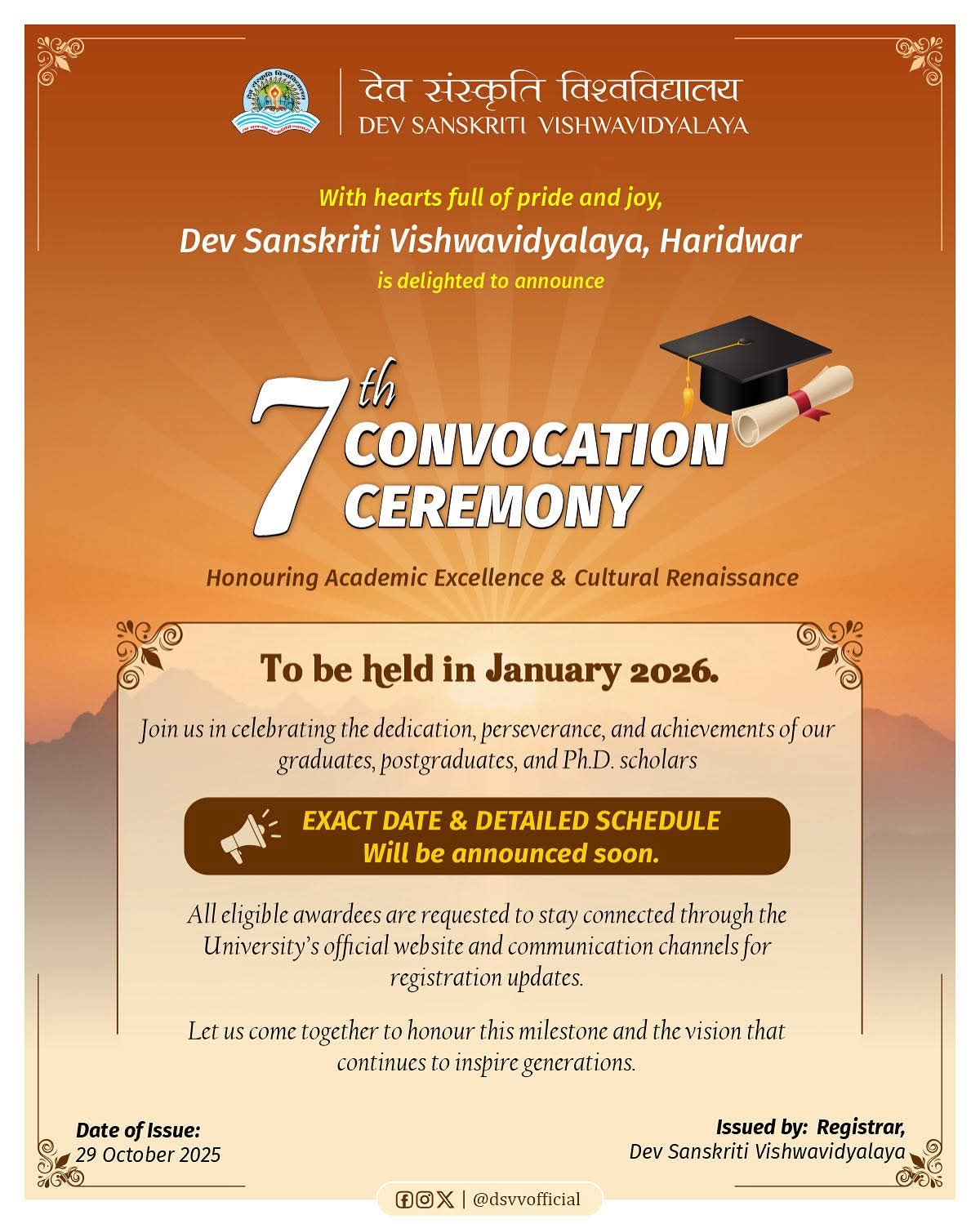M.Sc. (Herbal Medicine and Natural Product Chemistry)
1 Year Program – Research Only
Program Code: HSHSS6.5MSCHMC
Duration: 1 Year (Full-Time)
Mode: On-Campus at Dev Sanskriti Vishwavidyalaya, Haridwar
Intake: July 2025
Department: Department of Scientific Spirituality
Faculty: Faculty of Human Values
Schoo: School of Humanities, Social Sciences and Human Values
Overview
This is a pioneering one-year, research-focused Master of Science (M.Sc.) program that isaligned with the National Education Policy (NEP-2020), and provides participants a unique opportunity to do research in specific areas related to herbal medicine and natural product chemistry. The program integrates indigenous wisdom with modern scientific approaches, that can prepare the students for careers in research, product development, and quality control, related to their specific area of research work.
Program Focus and Possible Research Areas/Topics
The research work in this program shall focus on one or more of the following areas (although a specific student will actually work on a single or a few of these areas):
- Natural Product Chemistry: Study of plant-derived compounds, their bioactivities, and chemical properties.
- Quality and Regulatory Standards: Emphasis on GMP and WHO guidelines for ensuring purity, quality, and consistency of herbal products.
- Interdisciplinary Insights in Herbal Medicine: For example, exploring philosophical and practical aspects of Ayurveda and Yagya Therapy (ancient herbal therapy including inhalation and rhythmic chanting, etc.), and blending them with modern validation techniques.
- Hands-on Training: Practical exposure to laboratory skills and industrial applications.
Research Framework
This program provides an opportunity of exploring one or more of the following techniques
in one’s research (including, but not limited to):
- Phytochemical Studies:
- Analysis of secondary metabolites (alkaloids, flavonoids, terpenoids, saponins, essential oils).
- Structural analysis of bioactive compounds and understanding herbal databases.
- Practical Techniques:
- Solvent extraction, distillation, and chromatography.
- Identification methods: Thin-Layer Chromatography (TLC), UV-visible spectrophotometry.
- Advanced analysis using HPLC and GCMS.
- Herbal Medicine Preparation:
- Development of powders, tablets, and their therapeutic applications.
- Specialized Research:
- Capstone project focusing on new herbal medicines or bioactivity studies.
- Emphasis on Himalayan herbs and Ayurveda-based medicinal plants.
- Industry Exposure:
- Field trips to herbal medicine industries.
- Research aligned with industrial needs.
- In Vitro Cell Culture Studies:
- Efficacy and mechanistic evaluation of herbal medicine through in vitro cell culture studies.
Program Structure
Semester 1
Thesis phase 1 – 20 credits
Life management course-1 – 2 credits
Semester 2
Thesis phase 2 – 20 credits
Life management course-2 – 2 credits
Total credits = 44
Life management – a value-added course (vac) offered by the Department of Life Management of the university
Moocs (massive open online courses) will be allowed as per university policy.

